Search Images
Browse Content (p. 1390)
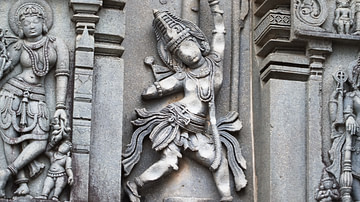
Image
Arjuna at the Draupadi Swayamvar
Sculpture on the outer walls of the Channakesava temple at Belur, showing Arjuna in the act of piercing the fish. Belur, Karnataka, India, 12th century CE.
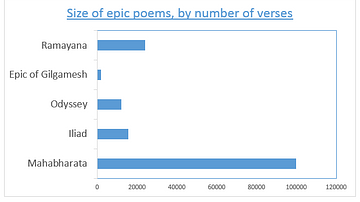
Image
Comparative Bar Chart of Ancient Epics
Size of some of the epic poems of the ancient world, reckoned by the number of lines they contain.
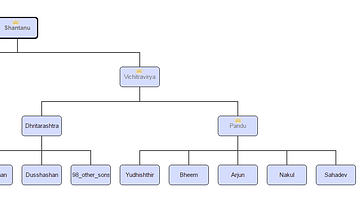
Image
The Kuru Family Tree
The Kuru family tree, from Shantanu downwards, at the time of the Mahabharata war. Those already dead at the time of the war are in grey; those who were formally coronated have a crown alongside with their names.
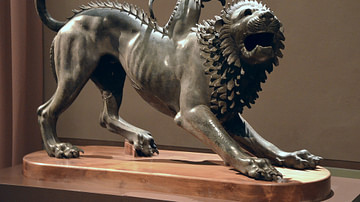
Image
Chimera of Arezzo, Florence
The bronze "Chimera of Arezzo" is one of the best-known examples of Etruscan art. It was found in Arezzo (Arretium), an ancient Etruscan and Roman city in Tuscany (Italy). The statue is estimated to have been created around 400 BCE. Museo...
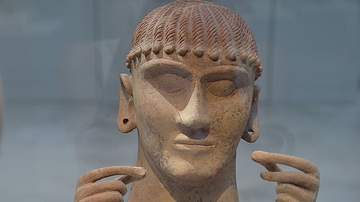
Image
Etruscan Canopic Figure Urn
Etruscan terracotta canopic urn with a female head and articulated arms, from Chiusi (Italy), around 550-500 BCE. (Louvre Lens, France)
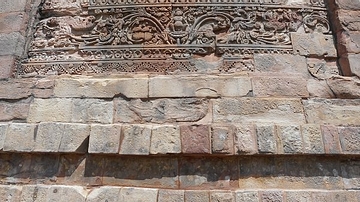
Image
Wall Detail, Dhameka Stupa
Floral motifs on the walls of the Dhameka Stupa. Sarnath, Uttar Pradesh, India, 3rd century BCE.
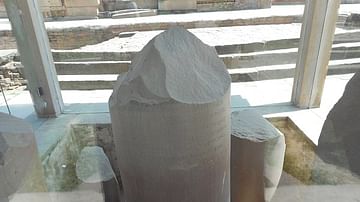
Image
Ashokan Pillar Base, Sarnath
Remains of an Ashokan Pillar in the Buddhist monastery around the Dharmarajika Stupa. The pillar has three inscriptions: the earliest is an Ashokan edict warning the monks and nuns of the monastery against quarrelling with each other, the...
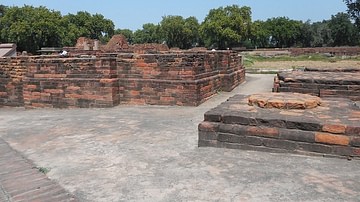
Image
Remains of a Buddhist Monastery, Sarnath
Remains of a Buddhist monastery around the Dharmarajika Stupa. Sarnath, Uttar Pradesh, India, 3rd century BCE.
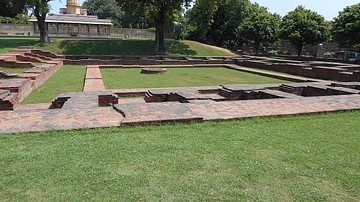
Image
Buddhist Monastery Ruins, Sarnath
Remains of a Buddhist monastery around the Dharmarajika Stupa. The rectangular cells are thought to be rooms where the monks slept. The yellow structure visible in the background is a relatively modern Jain temple. Sarnath, Uttar Pradesh...
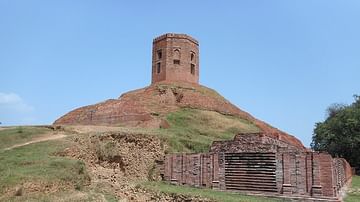
Image
Chaukhandi Stupa, Sarnath
The Chaukhandi Stupa was built during the Gupta period (4th and 5th century CE) and is believed to mark the place where the Buddha first met a group of five ascetics (who were later to become his first disciples). Rectangular in shape, with...